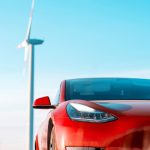Several months following the most recent update on Apple’s automotive venture, indications suggest that the tech giant is tempering the once lofty ambitions for its anticipated vehicle. The initiative, known as Project Titan, has reportedly shifted towards a more achievable goal of launching an electric vehicle (EV), as opposed to the initially proposed fully autonomous car.
Scaling Back Autonomy
Based on insights from Bloomberg’s Mark Gurman, Apple has refocused its strategy to a less complex design that features Level 2 automation. This level includes supportive functions such as adaptive cruise control and lane centering, which still require driver engagement as opposed to complete driverless technology.
The revised target for the Apple Car’s debut is now set for no earlier than 2028. This is a departure from the company’s original plan to offer a Level 4 autonomous vehicle capable of operating without human input in specific scenarios, such as robotic taxis.
Internal Reassessment and Future Prospects
Internally, this change represents a critical juncture for the project, with the potential outcome being either the delivery of a product with scaled-back features or a fundamental reevaluation of the project’s viability by Apple’s top executives.
Although Apple could potentially update the vehicle to support Level 4 autonomy after its initial release, this seems overly optimistic for a 2028 launch. The previous design aimed at a system that would navigate highways autonomously in certain parts of North America.
Despite the ongoing speculation and historical reports of setbacks, leadership changes, and internal team dissolutions, the true status of Project Titan remains largely enigmatic. Apple’s entry into the EV market, following its venture into mixed reality with the Vision Pro headset, continues to be shrouded in uncertainty.










